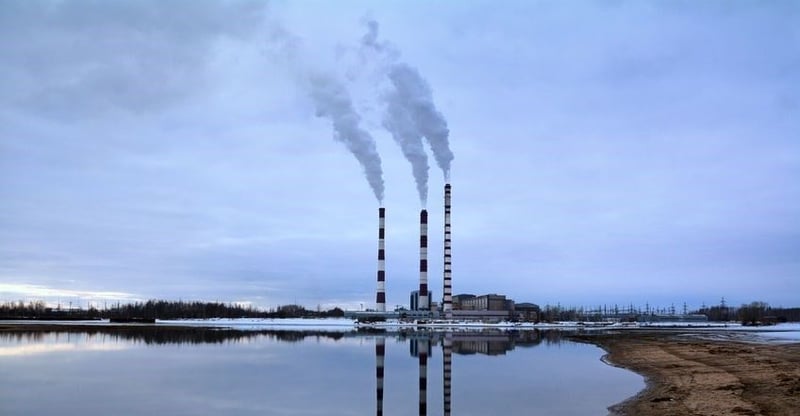Updated Carbon Tax Framework And Its Impact On High-emission Industries
Written by: BizCommunity Editor Save to Instapaper
Image source: jordano2000 – 123RF.com
In order to achieve this, SA government has revised the carbon tax incentives and deterrents, which has lead to a decrease of the tax-free carbon allowance and an increase of the carbon tax rate. This will have significant implications across various industries, especially for carbon-intensive ones.
Phase 2 of the carbon tax framework is set to commence in 2026.
Roxanna Naidoo, head of Global Strategy at Latita Africa, outlines some of the key revisions and the impact they will have on different industries. One of the biggest changes is a cut in the tax-free carbon allowance from 60% to 30% by 2026. This is meant to encourage companies to reduce their carbon emissions, says Naidoo.
Every year until 2030, there will be a further annual reduction of this allowance by 2.5 percentage points. Meanwhile, government is increasing the offset allowance for combustion emissions from 10% to 25% to encourage companies to invest in approved carbon offset projects in order to reduce their carbon tax liability.
Impact on carbon-intensive industries
The reduction in tax-free allowances will substantially raise the tax liabilities in traditionally carbon-intensive industries such as mining, steel, and cement production.
“This escalation in operational costs may compel these sectors to invest in cleaner technologies and enhance energy efficiency to mitigate financial impacts,” says Naidoo. “Although the increased offset allowance offers some relief by permitting greater use of carbon offsets, it may not fully counterbalance the heightened tax burden.”
The energy sector, led by state-owned Eskom with its heavy reliance on coal-fired power generation, will also face increased financial pressure. Here the revised tax structure aims to encourage a shift towards renewable energy sources without directly passing additional costs onto consumers, according to Naidoo. However, the transition may necessitate significant investment in renewable infrastructure and could influence electricity pricing strategies.
Staying competitive
For export-oriented industries, the higher domestic carbon tax may bring some advantages in the global context. South African products are likely to benefit from the reduced carbon price differential, potentially mitigating additional tariffs on exports into jurisdictions with carbon tax frameworks such as the European Union's Carbon Border Adjustment Mechanism (CBAM).
“This alignment with international carbon pricing can enhance the global competitiveness of South African goods,” says Naidoo.
She points out that the policy changes are also creating opportunities for growth in renewable energy and carbon offset projects. “Companies may increasingly invest in renewable energy initiatives to reduce taxable emissions,” she says.
“Additionally, the expanded offset allowance incentivises the development of projects that generate carbon credits, fostering innovation and investment in sustainable practices.”
While South Africa’s stricter carbon tax policy will present challenges, particularly for carbon-intensive sectors, it also offers opportunities for innovation, investment in cleaner technologies, and alignment with global carbon pricing mechanisms. Naidoo advises industries to proactively adapt to these changes to maintain competitiveness and contribute to national and global climate objectives.
We submit and automate press releases distribution for a range of clients. Our platform brings in automation to 5 social media platforms with engaging hashtags. Our new platform The Pulse, allows premium PR Agencies to have access to our newsletter subscribers.
Latest from
- Rainbow Celebrates Women QA Leaders Committed To Nourishing The Nation Safely
- Khayelitsha Clinic Increases Sterilisation Drive To Reduce Pet Overpopulation And Disease
- South African Central Bank Assesses Minimal Impact From US Tariffs On Trade And Jobs
- Ammat Global Resources Drives Congo Oil Growth With Bold Targets At African Energy Week
- FAO Reports 1.6 Percent Monthly Increase In Food Price Index Led By Vegetable Oils
- Business Partners Highlights Urgent Need To Bridge Gender Finance Gap In Entrepreneurship
- Mustadafin Foundation Champions Young Single Mothers Through Empowerment Initiatives
- New Pnet Insights Show Gender Divide Continues In Wages And Senior Workplace Roles
- Neema Foundation Launches Registration For 9th Silent Walk And Run To Empower Deaf Community
- Spier Launches Private Villas Featuring Heated Pools And Outdoor Entertainment Areas
- Labour Court Clarifies Political Parties Should Avoid Acting As Proxy Trade Unions
- Expert Advice On Transforming Channel Partners Into Powerful Brand Advocates
- LG Online Brand Shop Hits One Year Milestone With Strong South African Customer Growth
- Penquin Celebrated For Creative Excellence In Africa By Smarties 2024 Business Impact Index
- Sentech Welcomes Clarinda Simpson As CFO While Announcing Leadership Restructuring
The Pulse Latest Articles
- Reimagine Your Daily Ritual: Meet The Shower That Does More Than Just Cleanse (August 4, 2025)
- Xlink: An Avant-garde, Purpose-driven Fintelco Driving Digital And Payments Interoperability On The African Continent (August 1, 2025)
- Success Is Just The Beginning For This South African Brand (July 31, 2025)
- Embassies Business Fair And Conference 2025 To Fast-track Africa’s Global Economic Integration (July 31, 2025)
- There Is A Small Business Funding Readiness Crisis In South Africa (July 30, 2025)
